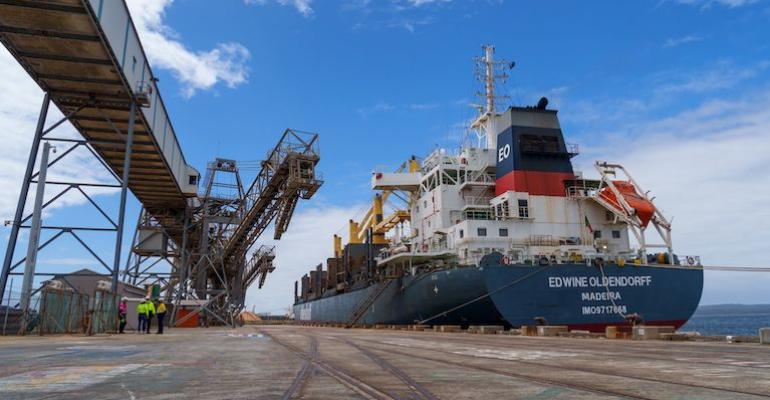Drop-in biofuels are growing in popularity as a way to reduce CO2 emissions from existing ships with making modifications to the vessel’s engines.
As part of a 2019 research agreement between Oldendorff and the Massachusetts Institute of Technology’s (MIT) Center for Bits and Atoms (CBA) the shipowner asked MIT to conduct a study on the long-term stability and degradation of a B20 advanced biofuel blend.
The study aimed to address concerns that biofuel blends would be more prone to oxidative degradation due to the presence of unsaturated fatty acids resulting in stability and degradation issues over time when the fuel is stored in a vessel’s tanks.
The study involved monitoring of 15 samples of B20 biofuel, consisting of a 20% bio-oil derived from used cooking oil, blended with very low sulphur fuel that were bunkered by the Edwine Oldenodorff in January 2022. The 15 samples were split into three separate storage groups at different temperatures. The samples were then tested regularly across eight different chemical parameters from May 2022 to April 2023.
After a thorough analysis, fuel degradation was observed:
- Low levels (<10 CFU/ mL)1 of microbial contamination (MBC) were observed after the first month of storage in almost all samples, irrespective of storage conditions. MBC increased over time, reaching almost 50 CFU/mL in samples exposed to light. FAME content in biofuels encourages microbial growth as microorganisms biodegrade natural fats and oils. MBC can lead to operational problems, including fouling of tanks, pipes and filters, tank corrosion, and fuel injection equipment damage. Conclusion: biocide addition is highly recommended to preserve blended biofuel for an extended period.
- Oxidative degradation, began from M3-M6 onward, as indicated by a significant increase in peroxide values, a slight increase in acid value, and a slight decrease in oxidation onset temperature. Addition of antioxidants is recommended together with regular monitoring of fuel quality for long-term onboard storage, especially with higher biofuel blends.
- No sediment was generated after thermal ageing and there was no observed sediment formation or water increase over time.
- Although exposure to air, water & light contributed significantly to fuel degradation, the impact of storage temperature on degradation remains unclear.
Copyright © 2024. All rights reserved. Seatrade, a trading name of Informa Markets (UK) Limited.
Add Seatrade Maritime News to your Google News feed.  |

